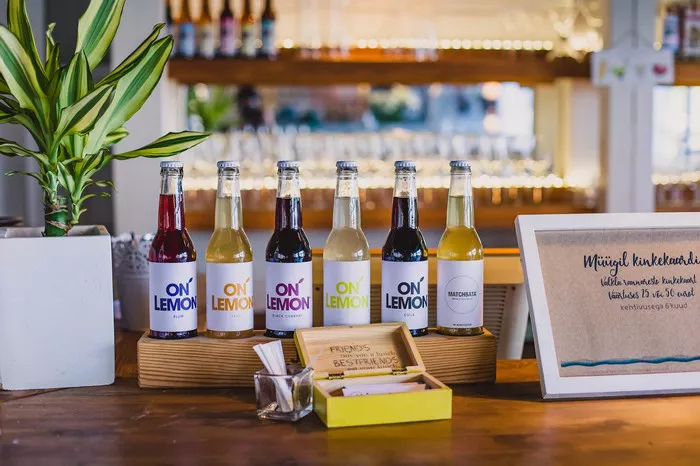Root beer, a beloved beverage in many households, often sparks curiosity among parents regarding its suitability for young children, including 9-year-olds. Understanding the ingredients, nutritional content, and potential health effects of root beer is essential for making informed decisions about its consumption by children.
Root beer typically contains carbonated water, sweeteners, and flavorings such as sassafras root, wintergreen, and vanilla. Historically, sassafras was a key ingredient, but due to concerns about its safeness, many modern root beers use artificial flavors. The taste of root beer is distinctive, often described as rich, sweet, and mildly spicy, making it appealing to both children and adults alike.
Nutritional Considerations
From a nutritional standpoint, root beer is considered a non-alcoholic and caffeine-free beverage. It is generally higher in sugar content compared to other soft drinks, with variations depending on whether it is sweetened with high-fructose corn syrup, cane sugar, or artificial sweeteners. A typical 12-ounce serving of root beer contains approximately 150 calories and 40 grams of sugar, which can vary between brands and recipes.
For parents concerned about sugar intake, choosing root beers sweetened with cane sugar or opting for diet versions sweetened with artificial sweeteners can be alternatives. However, moderation remains crucial due to the high sugar content in traditional root beers, as excessive sugar consumption can contribute to various health issues in children, such as obesity and dental cavities.
Health Effects of Root Beer
Root beer is generally considered safe for consumption by children when consumed in moderation. Its caffeine-free nature makes it a popular choice among parents who prefer their children to avoid stimulants. However, the high sugar content remains a point of concern, especially in relation to childhood obesity and dental health.
Some root beers also contain caramel colorings, preservatives, and phosphoric acid, which are common in many carbonated beverages. While these additives are generally recognized as safe by regulatory authorities, some parents may prefer to limit their children’s exposure to such ingredients.
Parental Guidance and Recommendations
When deciding whether to allow a 9-year-old to drink root beer, parental guidance is essential. It’s important for parents to consider their child’s overall diet, including their intake of sugars from other sources such as snacks and desserts. Encouraging moderation and teaching children about balanced nutrition can help them make informed choices about beverage consumption.
Educating children about the effects of sugary drinks on health, including the importance of dental hygiene, can also be beneficial. Parents can use root beer consumption as an opportunity to discuss healthy choices and the concept of treats in moderation.
Aee Also: Is White Claw Considered a Domestic Beer?
Alternatives and Comparisons
Comparing root beer to other beverages commonly consumed by children can provide perspective. Juice drinks, for example, often contain natural sugars but lack the carbonation and distinct flavor profile of root beer. Similarly, sports drinks and flavored waters may offer hydration benefits but can also contain added sugars and artificial ingredients.
Water remains the healthiest choice for hydration, providing essential hydration without added sugars or calories. Encouraging children to drink water throughout the day while reserving root beer as an occasional treat can help strike a balance between enjoyment and nutritional responsibility.
Cultural and Social Perspectives
Root beer holds a unique place in American culture, often enjoyed at family gatherings, picnics, and parties. Its nostalgic appeal and availability in various forms—from traditional bottled versions to draft root beer served in restaurants—underscore its enduring popularity among children and adults alike.
In some families, homemade root beer recipes have been passed down through generations, further enhancing its cultural significance. Sharing these traditions with children can foster a sense of connection to family heritage while promoting responsible consumption habits.
Educational Opportunities
In educational settings, root beer can serve as a teaching tool for discussing topics such as food ingredients, nutrition labels, and advertising influence. Analyzing root beer commercials or packaging with children can encourage critical thinking about marketing strategies and the portrayal of sugary beverages in media.
Teachers and parents can collaborate to create activities that explore the science behind carbonation or the history of root beer as a beverage. Hands-on experiments, such as making homemade root beer using safe recipes, can provide children with a fun and educational experience while emphasizing the importance of moderation in treat consumption.
Conclusion
In conclusion, while root beer can be enjoyed by 9-year-olds and older children as an occasional treat, its high sugar content necessitates moderation. Parents play a crucial role in guiding their children’s beverage choices and educating them about the nutritional aspects of foods and drinks they consume.
Choosing root beers with lower sugar content or opting for sugar-free alternatives can mitigate some health concerns associated with traditional root beers. By encouraging balanced nutrition and healthy hydration habits from a young age, parents can help their children develop lifelong habits that support overall well-being.
Ultimately, the decision to allow a 9-year-old to drink root beer should be informed by considerations of their overall diet, health status, and individual preferences. With thoughtful guidance and moderation, root beer can be a delightful part of childhood experiences while promoting a balanced approach to nutrition and wellness.


